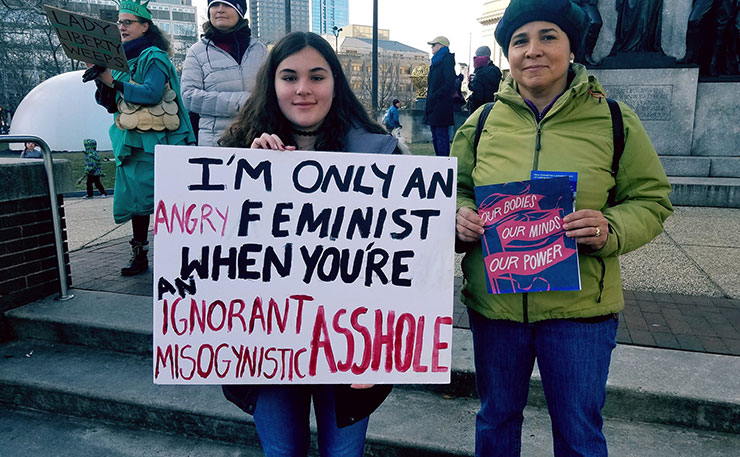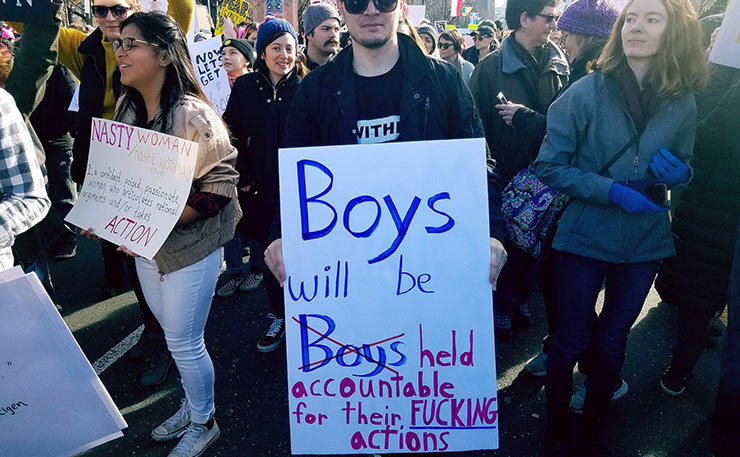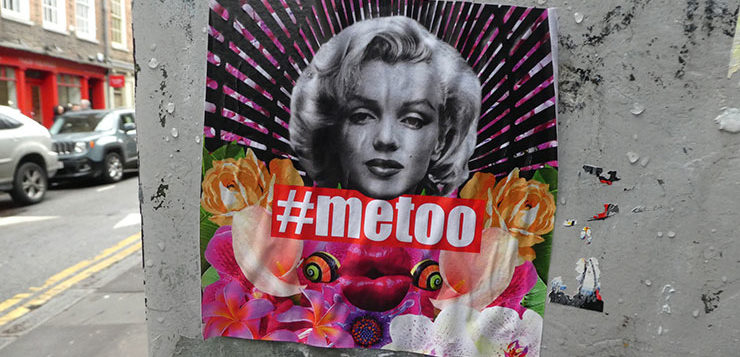The face of activism is changing, writes Sanjana Pegu, and the sooner we all accept it, the better off we’ll all be.
MeToo has been revolutionary in opening the floodgates for millions of women to share their stories of sexual abuse, harassment, and rape. It has unfolded and unleashed itself primarily over online spaces but with repercussions in the real, material world. And even though it may not be the best time to launch a defence of social media, its role in launching and sustaining this movement cannot be denied.
Any time feminism becomes ‘radical’ enough to wrest back some power from everyday patriarchy, defenders of the status quo and protectors of male privilege spring up and bring their choicest diatribes in countering a feminism that has apparently gone too far.
Allegations range from a mob frenzy to McCarthyism to a false sense of victimhood to a Victorian mindset on sex. The latest to join the anti-MeToo brigade is Minister for Women, Kelly O’Dwyer.
The divide between older (read, due process champions) and younger feminists – whose main objective is to break the silence around sexual harassment – is supposedly so insurmountable that Vox ran a survey to find out if it’s true (it isn’t, in case you wanted to know).
Why MeToo needs social media
But that there has been much unwarranted criticism of MeToo is undeniable. The most common complaint by older feminists (and some younger ones) is that it is merely an online movement of shrieking, hysterical women, portraying themselves as victims, and demonising all men to gain – what? The details are sparse.
Some have criticised such online movements for bypassing the real, physical, traditional protest sites of marches and rallies. While there are legitimate criticisms of MeToo (for instance, that it hasn’t made much of an impact on poor, working class women), admonishing feminists for fighting their battles through social media and other forms of internet discourse is nothing but a lazy, superficial argument.
Mass rallies like the Women’s March can be an effective form of protest but they do not always deliver tangible results. The same holds true for online protests; not all of them will work but the ones that do (like MeToo) have the potential to transform lives.

For sexual harassment and assault, the internet is probably the only medium that can be used by all victims as an effective weapon against their abusers. Speaking out about such traumatic experiences demands an extraordinary amount of mental and emotional labour and can too often be triggering for survivors.
This is exacerbated by the twin pillars of rape culture, victim-blaming and slut-shaming and all the stigmatisation, ostracisation, and bullying that comes with them.
In an environment as toxic as this, only social media can guarantee anonymity and an audience of hundreds, if not more, to the victim.
This is why something on the scale of MeToo hasn’t happened until now (although one must acknowledge the groundwork that was laid by earlier movements). Sacrificing your own identity to call out your abuser is a privilege that most women cannot afford. This is where online mediums provide us with a powerful platform to tell our stories with the assurance that our voices are being heard, acknowledged, and believed by women across the globe, transcending the spatial, temporal limitations of a protest march. That this kind of solidarity is cathartic, liberating, and incredibly empowering is self-evident.
Earlier, whose stories got told and whose were dismissed was a matter of social and cultural capital. Now, such barriers have been lifted and all one needs is the internet. There are issues, of course, in how we use this kind of unfettered access. But there have been numerous examples around the world where a post on social media (usually accompanied with proofs like chat screenshots) has been enough for other victims to call out the same predator.
Could this have happened in the pre-internet days? Unlikely.
The Future is Fingertip Feminism
Another common line of attack against online feminist activists is their mob-like, vigilante behaviour that is more interested in takedowns than mature, respectful debates, and has little respect for history or complex feminist theories and struggles.
Alternatively labelled with the pejoratives of “Twitter feminists” (presumably because their feminism is limited to tweeting only, right?), keyboard warriors, or “finger-tip activists”, the theory goes that that this online mafia of irresponsible, militant, fascist-like feminists with no regard for due process or institutions have scared off many women who remain silent out of fear of being attacked for their contrarian views.
It’s quite ironic that those who are crying censorship are the ones who get paid to write a four-page essay in Harper’s magazine and have an exclusive feature done on their opinions. Claiming a witch-hunt and playing the victim is quite rich when the same people resort to name-calling and throw derogatory epithets at those with whom they disagree. They essentially see themselves as gatekeepers and ringleaders of feminism and what counts as legitimate feminist praxis.

These lazy, online activists, on the other hand, rely on platforms like Facebook and Twitter that can and actually have disbarred them repeatedly for their views and politics. It also doesn’t acknowledge the fact that putting your activism online means vicious trolling, especially for feminists who have to deal with actual threats to their safety, including rape threats. The mental and emotional toll that it takes has caused many to quit social media altogether.
Social media is messy, confusing, frustrating but it is inherently democratising (until such time as their overlords deem you non-threatening) and an inevitable part of our lives. For most activists, it has become an essential tool to organise, reach out to other activists, broaden your audience, and expand your solidarity networks. Even if one would rather be a Luddite, there’s no getting around the fact that online spaces have become almost as important as the real world.
Many older feminists like to rest on their past laurels to shame younger ones as naïve or dangerous or both. But invoking their contributions to feminist movements as some kind of free pass to vilify those whose acts of protest they now find unappetising is unfair and hypocritical. It comes across as a petty game of one-upmanship wherein the self-appointed doyens of feminism want to ensure that they and only they can define and determine what is acceptable feminist behaviour, purely on the basis of past credentials.
But even though we acknowledge their work, they would do well to remember that just like their past has influenced our present, the future course of feminism will be decided by the battles of these fingertip feminists. Belittling and delegitimising our methods is akin to being a fossil, stuck in the past, resentful of the present, and unable to comprehend the future.
Donate To New Matilda
New Matilda is a small, independent media outlet. We survive through reader contributions, and never losing a lawsuit. If you got something from this article, giving something back helps us to continue speaking truth to power. Every little bit counts.




